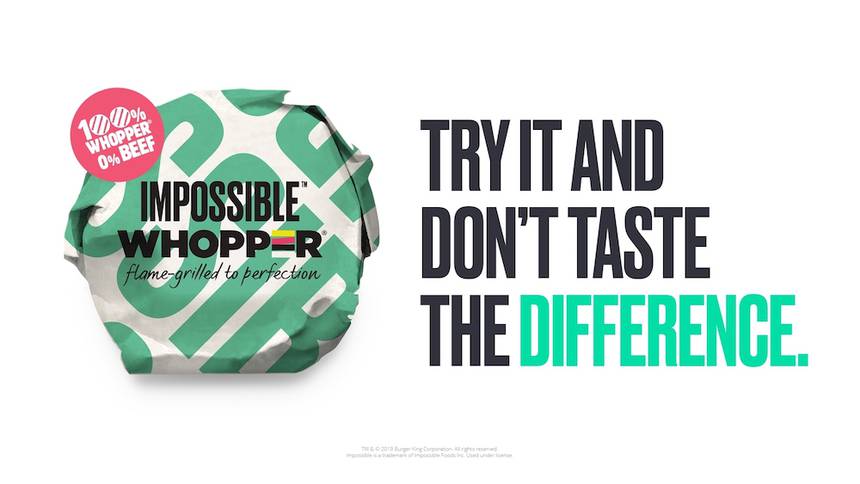A pilot project will gauge interest in this famous ‘bleeding’ veggie patty and potentially expand across the country.
It’s an unlikely partnership, Burger King teaming up with Impossible Foods to offer a meatless Whopper patty. But despite the announcement being made on April 1st, this is no April Fool’s joke. The fast food giant, known for its “meaty excess,” as a writer at Grist put it, has realized that it needs to get with the times and offer a more appealing vegetarian option to hungry customers.
The company announced on Monday that it will start testing the Impossible patties at 59 locations across St. Louis, Missouri. If the pilot project is successful, the patties would roll out across the company’s 7,200 stores – and double the number of locations in which the Impossible Burger is currently sold.
The Impossible Whopper, known for its ability to ‘bleed’ like a beef burger, will be made exactly like a regular Whopper, served on a sesame seed bun with mayonnaise (which means it’s not vegan unless the mayo’s left off) and wrapped in white paper with Whopper branding. It has the same amount of protein, but 15 percent less fat and 90 percent less cholesterol.
It will cost $1 more than the beef version, but Burger King’s president Christopher Finazzo told Reuters that “customers do not mind paying extra and like the plant-based burger for its health benefits.” And who knows, this price could drop as Impossible scales up production.
Impossible Foods has been scrambling to expand to supply the pilot project. The New York Times reports that the 350-person company handles all production from its 68,000 sq. ft. facility in Oakland, California. A second shift has been added at night, as well as a special production line dedicated to Burger King orders. These patties are made with the exact same recipe as other Impossible products, but shaped to “resemble the broad, flat shape of the Whopper patty.” They’ve been tested thoroughly:
“When the company was negotiating with Burger King, it had one of the chain’s flame-broiling machines shipped overnight to its headquarters to ensure that the burgers would not break apart in mass production.”
It’s clear that the food landscape is shifting, that more people want to reduce their meat intake, whether for health, ethical, or environmental reasons. Impossible makes it possible for people to do so, without feeling like they’re missing out on the taste and texture of beef, and partnering with Burger King makes it even more accessible. This is great news, hopefully the start of something huge.
Below you can see BK customers experiencing the Impossible Whopper for the first time, and they’re stunned at how similar it is to real beef:
